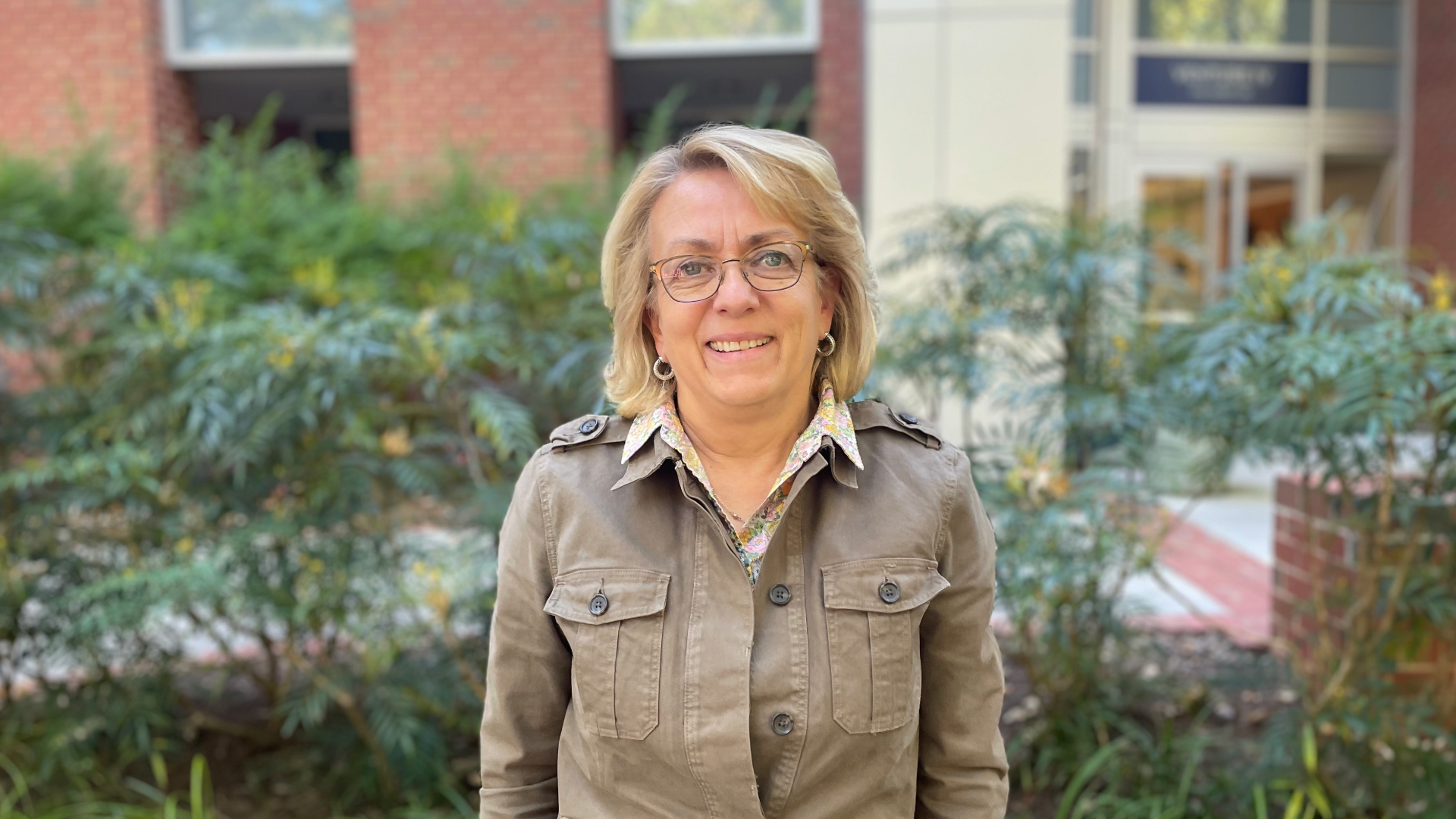
The People of IR-4 series introduces extraordinary IR-4 team members, highlighting the incredible contributors who make our success possible and our community one of a kind. Today, meet Mary Hausbeck, North Central Regional Director for IR-4 and University Distinguished Professor, plant pathologist, and Extension specialist at Michigan State University. Here, Mary shares her background with plants and experiences working with IR-4, from field research to serving on the Project Management Committee.
From Pickles to Plant Pathology
Mary Hausbeck was born into a family with deep agricultural roots—namely, a family pickle business started by her grandfather. Following his unexpected passing, Mary’s grandmother stepped in to lead the fledgling operation, which she ran with the help of her four sons, including Mary’s father. She was able to grow the business enough to support her family, and in doing so, deeply connect them to the land where they grew their cucumbers. From the beginning, being surrounded by farming and entrepreneurship sparked Mary’s curiosity. In the summers, Mary worked the sorting line, culling cucumbers that weren’t suitable for pickling and hand-packing the ones that were suitable.
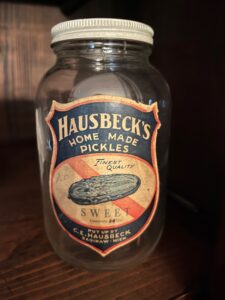 “In the evenings, as a kid, I found myself on my grandmother’s back porch with my dad and one or two uncles, and they would talk about the weather and the crop, and I just thought I was the coolest person ever to be hanging out on the porch just listening to them.”
“In the evenings, as a kid, I found myself on my grandmother’s back porch with my dad and one or two uncles, and they would talk about the weather and the crop, and I just thought I was the coolest person ever to be hanging out on the porch just listening to them.”
Inspired by her surroundings, Mary would often mail off registration cards for seed catalogues that would send her samples in the mail. From there, she would dig in her parents’ yard, turning it into an experimental garden and seeing what she could grow. Mary was fully supported in her exploration—her relatives were no strangers to the soil, and they took pride in raising another young plant lover.
“I dug up a good part of my parents’ yard to expand their vegetable garden for my own gardening. I needed more room for all of those seed packets that I ordered from the catalogues! I planted mostly flowers, such as different colors and sizes of zinnias, marigolds, and cosmos. I bought transplants of asters and snapdragons. These flowers are among my favorites for cut flowers still today.”
Budding Potential
Fueled by her interest in gardening, Mary pursued an undergraduate degree in horticulture at Michigan State University. Between her junior and senior years, she secured an internship working with a county Extension agent in Wisconsin, where she assisted homeowners with their landscaping questions. Mary had her own segment on a weekly radio show throughout the internship, where home and small business owners called in with their landscaping issues. Mary would visit sites with problems and collect samples to send to the University of Wisconsin-Madison diagnostic lab, which would diagnose diseases in the plants she was working with.
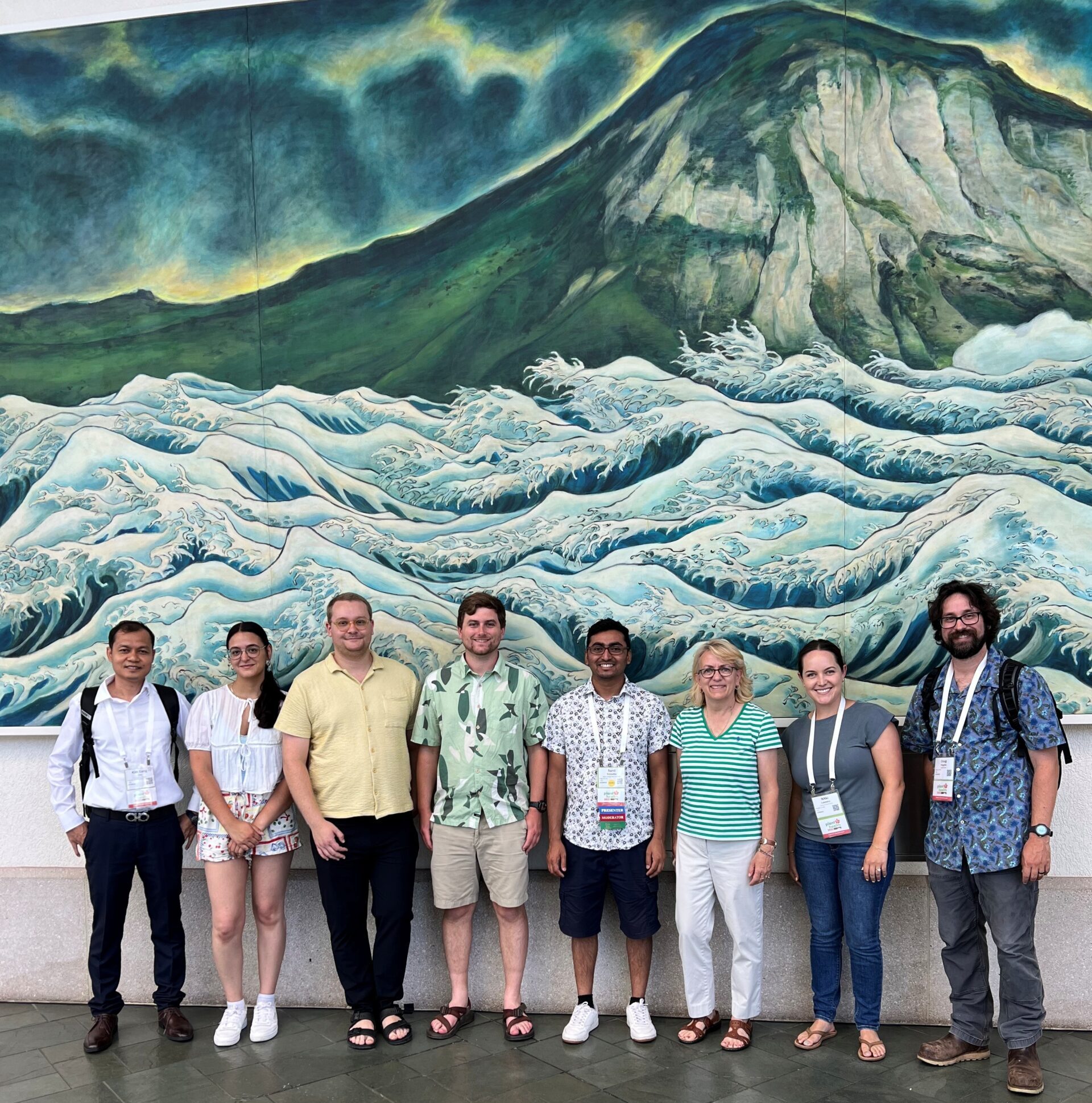
This internship ignited Mary’s scientific curiosity, clarifying plant pathology as her ideal career path, and giving her first-hand experience with the formative impact of internships and mentors on a budding student’s career.
“I love being part of my students’ journeys as they grow and develop and find that they have skillsets that maybe they didn’t recognize within themselves. It’s a process of learning what you love, what you don’t love, what you’re good at, what skills you can develop further, and what challenges you can overcome. In the best-case scenario, it is a relationship for life!”
Today, Mary gets to nurture new horticulturalists through the Hausbeck Plant Pathology Lab, where she and her team work to pinpoint disease management issues faced by growers and learn about them, whether they are new or resurgent pathogens. Beyond identifying and studying plant pathogens, the team works to evaluate crop protection strategies to help growers succeed and remain profitable.
“Part of our research has included developing forecasting systems so that growers apply fungicides only when the weather conditions favor disease development, which saves time and money. This forecasting system has been adopted by Michigan’s asparagus and carrot growers. We have also implemented a statewide early alert system for downy mildew on cucumbers, a problem that resurged after 20 years leaving our growers at risk.”
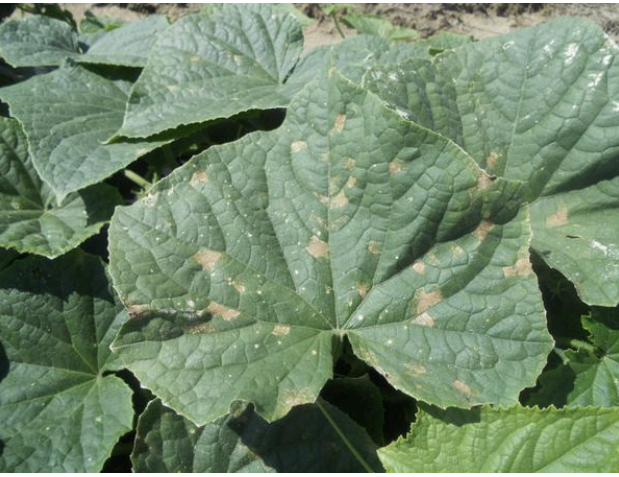
Mary points out that, while strategies like this can help growers apply pest management products effectively, they also require access to new solutions as new plant pathogens are introduced to the U.S. Effective products and adaptable strategies are needed to ensure growers can succeed, and “this is where the IR-4 Project has come to the growers’ rescue,” according to Mary, whose lab’s work has become essential to IR-4’s North Central Region.
From Lunch to Leadership
Mary’s introduction to IR-4 came while she was a junior researcher at Michigan State University. She was lured into a meeting held by regional researcher Satoru Miyazaki by the promise of a free lunch. While Mary thought she was just showing up for lunch, by the end of the initial meeting, her interest in IR-4 was piqued, and she made it a priority to attend as many IR-4 meetings as possible. Soon, she got involved in shaping IR-4’s research priorities, submitting Project Clearance Requests, and attending the annual Food Use Workshop.
“Over the years…the more I learned, the more I saw the value of IR-4 and the more I saw it as an excellent way to bring important tools back to the growers I serve. I’ve seen the damage that plant pathogens cause, resulting in economic losses to hard-working growers and their families. Working with IR-4 has allowed me to provide real solutions. Now, when growers look to me for answers to their plant disease problems, I have the answers that make a difference to their bottom line. ”
Mary’s dedication to helping the growers in her community and being an active advocate in IR-4’s research process eventually led to her being appointed IR-4’s North Central Regional Director and member of the Project Management Committee (PMC), which is IR-4’s board of directors.
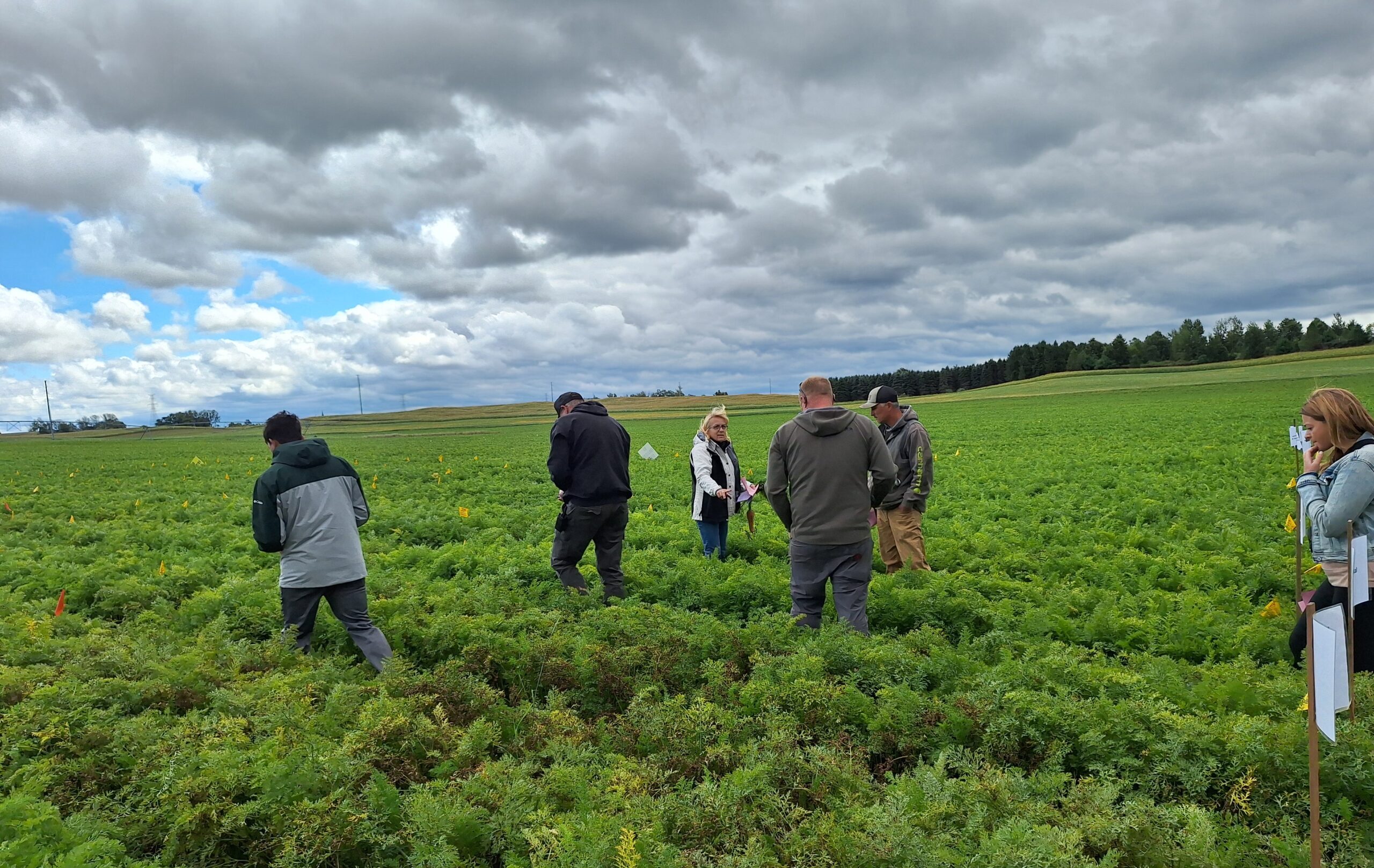
As Mary gets acquainted with her new role on the PMC, she has focused on making advocacy for growers and researchers a top priority. “I love that I have an enhanced opportunity to advocate for growers. As a member of the PMC, I want to provide support for our growers and all of those integral to the IR-4 process,” said Mary.
IR-4 applauds Mary Hausbeck’s commendable leadership as a plant pathology researcher and mentor. She has inspired and equipped countless emerging researchers with the tools they need to listen and serve growers. We are fortunate to have her insights and expertise helping to guide IR-4’s work. Thank you, Mary!
Are you an IR-4 team member interested in being featured & sharing more about your daily work? Contact our team at ir-4_project@ncsu.edu. We’d love to shine a light on what you do & how it impacts our organizational mission.
About The IR-4 Project
The mission of the IR-4 Project is to facilitate regulatory approval of sustainable pest management technologies for specialty crops and specialty uses to promote public well-being. By working directly with local crop growers across the country, IR-4 conducts research and develops data necessary for the registration of pest management tools, ensuring that they are safe for use. To learn more, visit our website.
